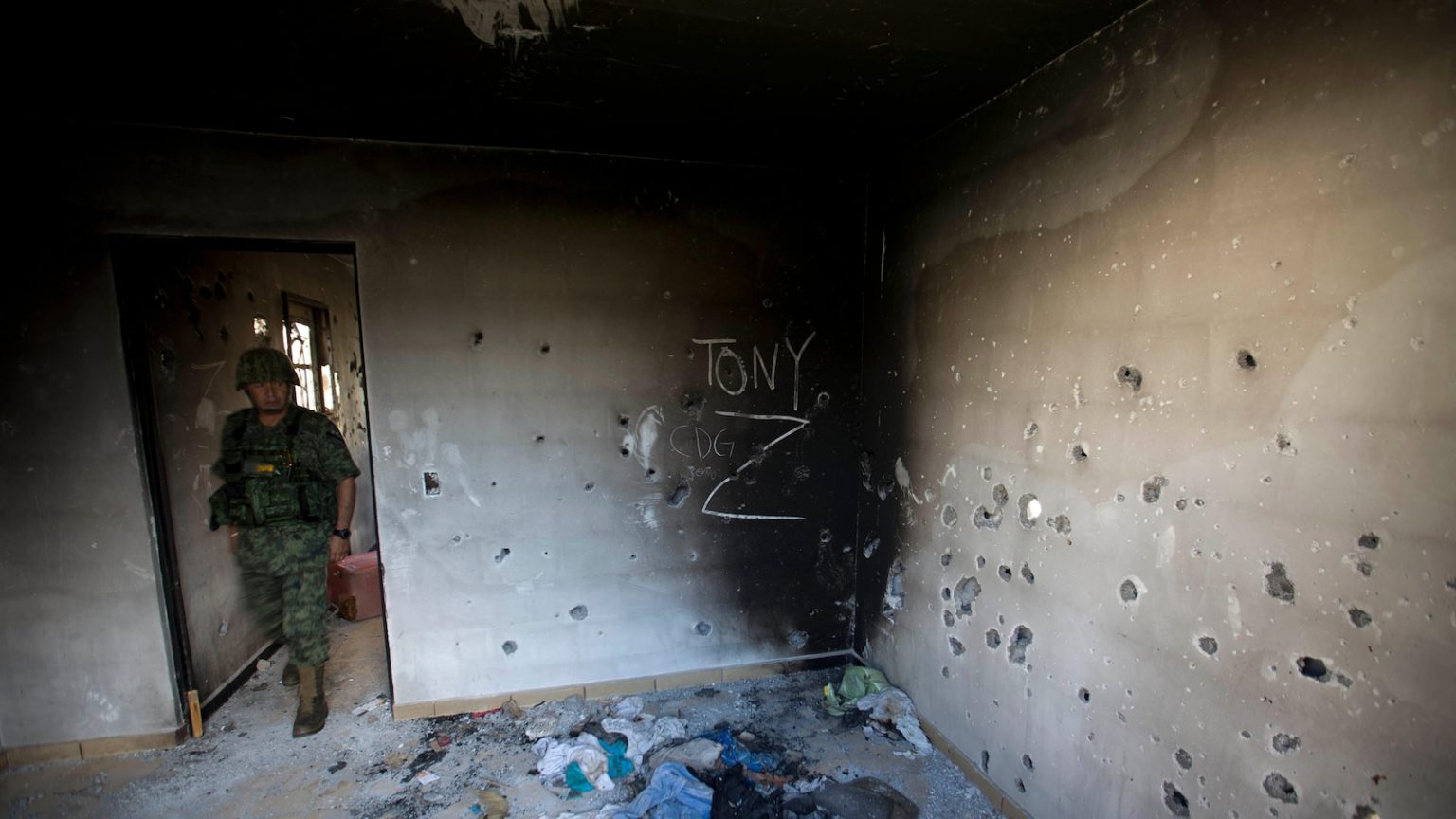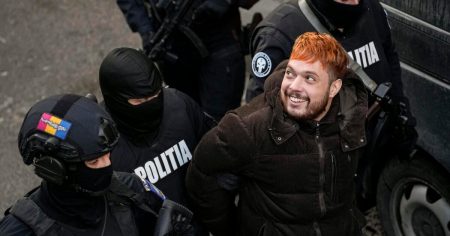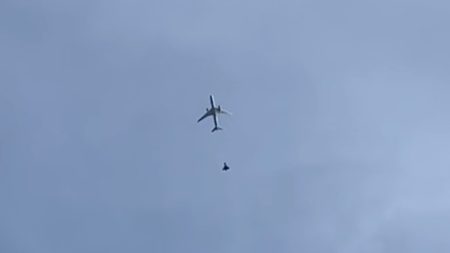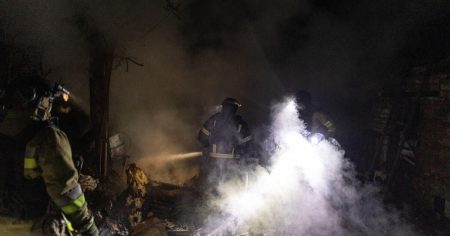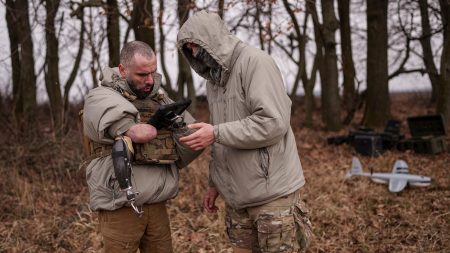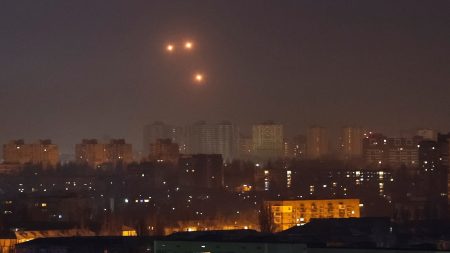The U.S. Designates Eight Latin American Crime Groups as Foreign Terrorist Organizations
The U.S. government has taken a significant step in its fight against organized crime by formally designating eight Latin American criminal organizations as “foreign terrorist organizations.” This move, unprecedented in its application, targets groups involved in drug trafficking, migrant smuggling, and violent expansion of their territories. The Trump administration is applying a designation typically reserved for groups like the Islamic State or al-Qaida, which use violence for political purposes, to these crime rings. The aim is to increase pressure on the groups and anyone perceived as aiding them. This designation, set to be published in the Federal Register, marks a new strategy to combat the influence of these organizations, which operate not only in Latin America but also within the U.S.
The Sinaloa Cartel: Mexico’s Oldest and Most Powerful Criminal Group
The Sinaloa Cartel, Mexico’s oldest criminal group, has been in operation since the 1970s. Based in the mountainous state of Sinaloa in northwest Mexico, the cartel functions as an umbrella organization, encompassing various groups under its command. It maintains strong control over the western portion of the U.S.-Mexico border, leveraging its vast network to smuggle drugs across continents using boats, planes, migrants, and cross-border tunnels. Sinaloa’s operations are highly sophisticated, and its influence is so entrenched that it has been accused of deep corruption within Mexico’s government. A former security chief was even convicted of aiding the cartel.
In recent years, Sinaloa has shifted its focus to the production and distribution of synthetic opioids, particularly fentanyl, a drug blamed for tens of thousands of overdose deaths annually in the U.S. The cartel imports precursor chemicals from China, manufactures the drug in Mexico, and smuggles it into the U.S. The arrest of Ismael “El Mayo” Zambada, one of Sinaloa’s top leaders, in July, has led to internal power struggles between loyalists of Zambada and the sons of the cartel’s most infamous former leader, Joaquín “El Chapo” Guzmán, who is currently serving a life sentence in the U.S.
The Jalisco New Generation Cartel: A Hyper-Violent and Expanding Force
The Jalisco New Generation Cartel (CJNG) emerged from the remnants of the “Zeta Killers” following the discovery of 30 dismembered bodies in Veracruz in 2011. Since then, the group has grown rapidly, establishing itself as one of the most violent and aggressive criminal organizations in Mexico. Based in the state of Jalisco, CJNG has expanded its influence through franchise agreements with local gangs, spreading its reach across Mexico and the U.S.
Led by Nemesio “El Mencho” Oseguera, CJNG has targeted Mexican authorities with explosive drones, improvised explosive devices, and even attempted the assassination of Mexico’s security director in Mexico City. The U.S. Drug Enforcement Administration reports that CJNG distributes tons of cocaine, methamphetamine, and fentanyl across all 50 states. Its relentless violence and strategic operations have made it a major concern for law enforcement on both sides of the border.
The Gulf Cartel and Northeast Cartel: Eastern Border Powerhouses
Operating along the eastern end of the U.S.-Mexico border, the Gulf Cartel and Northeast Cartel have established themselves as key players in the drug trade, moving drugs, immigrants, guns, and money into the U.S. The Gulf Cartel, with a long history in Mexico, has fragmented in recent years, leading to frequent clashes between factions. Its former leader, Osiel Cárdenas Guillén, who is now imprisoned, once recruited members of Mexico’s military to form the infamous Zetas, a brutal drug trafficking organization that later split from the Gulf Cartel.
The Northeast Cartel, a remnant of the Zetas, has retained control over a small portion of the territory once dominated by its predecessor. Based in Nuevo Laredo, the busiest commercial port on the U.S.-Mexico border, the Northeast Cartel continues to exert influence through relentless violence. Its operations remain a significant concern for U.S. authorities, who are seeking to disrupt its lucrative drug trafficking and smuggling activities.
The Michoacan-Based Avocado Cartels: A Threat to Trade and Security
While primarily known for their involvement in synthetic drug production, the organized crime groups operating in Michoacan, Mexico, have drawn U.S. attention for a surprising reason: avocados. The state of Michoacan is the world’s largest producer of avocados, exporting $2.8 billion worth of the fruit annually. However, criminal groups in the region have begun threatening U.S. inspectors tasked with ensuring the safety and quality of these exports. By controlling avocado production and pricing through extortion and violence, these groups have inserted themselves into the global supply chain, creating a unique challenge for both Mexican and U.S. authorities.
This development highlights the broader impact of organized crime on legitimate industries and international trade. Security analyst David Saucedo notes that the threats posed by these groups extend beyond drugs and violence, affecting the livelihoods of farmers and the stability of the avocado trade. The U.S. government’s decision to label these groups as terrorist organizations may therefore have implications beyond the immediate goal of disrupting drug trafficking.
Tren de Aragua and MS-13: The Faces of Migrant-Related Crime
Two other groups on the list, Tren de Aragua and MS-13, have been singled out by the Trump administration as symbols of the perceived threat posed by undocumented immigration. Tren de Aragua, which emerged from a Venezuelan prison over a decade ago, has expanded its operations across the hemisphere, from Chile to the U.S. While it originated in drug trafficking, the group has diversified into migrant smuggling, human trafficking, and sexual exploitation, using extreme violence to instill fear in the regions it operates.
MS-13, or Mara Salvatrucha, is another group that has been used by the Trump administration to illustrate the dangers of undocumented immigration. Yet, the group’s origins are deeply intertwined with U.S. history. MS-13 was founded in Los Angeles in the 1980s by refugees from El Salvador’s civil war, and its ranks include many U.S. citizens. Despite its brutal reputation for violence and drug sales in the U.S., the group has been severely weakened in El Salvador since President Nayib Bukele launched a crackdown on gangs nearly three years ago.
Conclusion: A New Era in the Fight Against Organized Crime
The designation of these eight Latin American crime groups as foreign terrorist organizations marks a significant shift in the U.S. strategy to combat organized crime. By applying a label typically reserved for groups like ISIS and al-Qaida, the Trump administration is signaling its intent to treat these organizations with the same seriousness as it does Other foreign enemies. The move is expected to increase pressure on the groups and their allies, potentially disrupting their operations and financing.
However, the long-term impact of this designation remains to be seen. While it may complicate the operations of these groups, it also raises questions about the broader implications for international relations, trade, and the communities affected by these organizations. As the U.S. and its partners in Latin America navigate this new approach to combating organized crime, the success of this strategy will depend on its ability to address the root causes of violence and corruption while minimizing harm to innocent populations.





